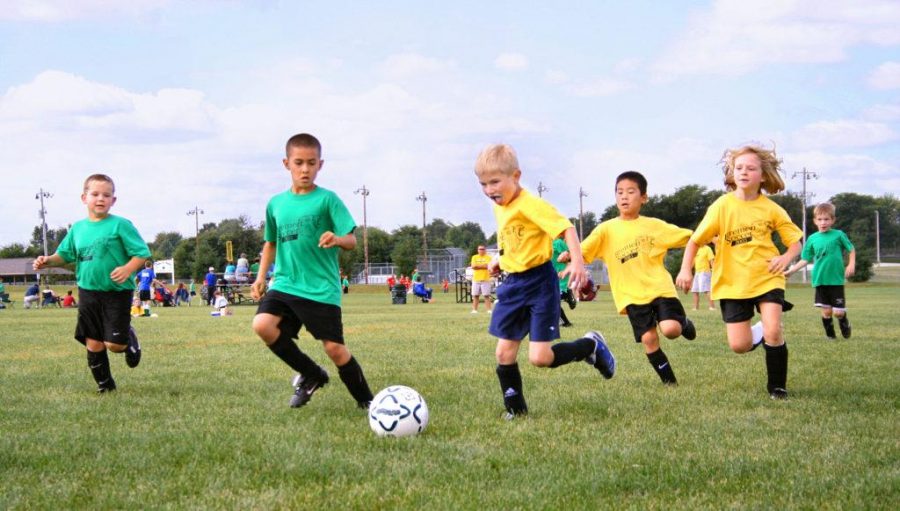How many of you remember childhood sports as playing Wiffle ball games in the park behind your house or dominating touch football at night with your friends? Who thinks of sports and smiles at the pick-up basketball games you’d have at your old elementary school or laughs when you think back on all the tennis balls you lost in the roof gutter trying to make up new games to play? No coaches demanding all your time outside of class, sometimes missing class altogether. No threats if you couldn’t dedicate your life to your middle school soccer team because you wanted to explore other activities. No tears shed over parents yelling through the chainlink because of a sub-par performance as a freshman in high school. It’s a shame that organized sports have taken this turn; intensity in sports is counterproductive and they have become unnecessarily competitive, demanding and emotionally compromising at times when kids need support, self-esteem and time for exploration.
I’ve always participated in team sports. Looking back on them, I have two sets of memories. First I think about my middle school and high school experiences through which I played softball and basketball – both nightmares. Coaches faced intense pressure for their players to perform, which meant more 5 a.m. runs before AP calculus, more frequent practices, verbal abuse and extra field/court maintenance. This always affected other aspects of our lives. We didn’t sleep enough. We were constantly practicing – to the point that it was detrimental to our performance, which only meant, you guessed it, more practice. We burned out halfway into a season, emotionally and physically. Our grades suffered due to a lack of sleep and no time to study. Relationships took hits because of stress. In fact, the only time I’ve publicly cried was game day junior year of high school when I was told there was a test that day that I hadn’t had time to study for. I failed it. We lost the game.
But sports weren’t always like that and they don’t have to be so painful for kids today. I consider the summers and falls I played competitive softball to be some of the best of my life. It was during those seasons that I learned what playing sports was all about. We practiced twice a week for two hours (compared to every day for three or four hours, with seven-hour-or-more game day commitments). We all worked hard individually with private coaches and parents to sharpen our skills, which allowed for quicker, more intense team practices. Our coaches each worked on a volunteer basis, which meant their livelihoods didn’t depend on our team’s performance. They weren’t overly intense, but still worked hard to ensure our success. We were successful. We won tournament after tournament around the western United States, including a nationally acclaimed Triple Crown World Series. It is thanks to these experiences that I see the good in playing team sports, especially through younger and more formative years. Sports can teach kids how to commit passionately and get good at something. They teach them to work as a team and feel proud when their hard work pays off. They provide kids with positive identities at ages when things may not seem so clear. All of these lessons are deeply important and organized sports have the potential to help kids learn them.
But the way sports have evolved into overly competitive time and energy traps has made them counterproductive. The time, energy and tears that kids put into athletics these days aren’t making them better players. Kids are learning to hate the game. They’re failing to learn some important lessons in healthy ways while growing up with negative mindsets towards competition; that it’s either win or die, that you have to dedicate everything to something to be good at it, that you need to beat everyone else no matter how much smack talk and bullying is necessary, that if you’re not crying, you’re not trying. It’s absurd. People need to understand that an approach like this isn’t healthy for young athletes and that a kid can still excel in sports, and life, without losing and killing themselves over the game.












Andy Richmond • Oct 11, 2021 at 8:42 pm
Nice article.